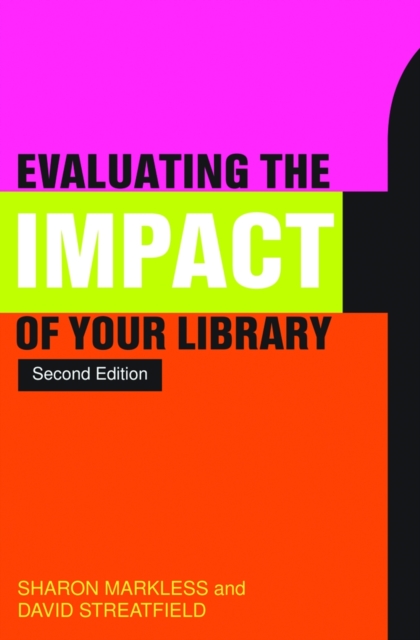
Evaluating the Impact of Your Library PDF
by David Streatfield, Sharon Markless
Description
Assessing impact is increasingly critical to the survival of services: managers now require comprehensive information about effectiveness, especially in relation to users. Outlining a rigorously tested approach to library evaluation and offering practical tools and highly relevant examples, this book enables LIS managers to get to grips with the slippery concept of service impact and to address their own impact questions in their planning. The 2nd edition is fully updated to include international approaches to qualitative library evaluation, new international research, and current debates on the evolving nature of evaluation, as well as reflections on the importance of involving stakeholders and of evaluation to guide advocacy.
Key topics include:
- The demand for evidence
- Getting to grips with impact
- The research base of this work
- Putting the impact into planning
- Getting things clear: objectives
- Success criteria and impact indicators: how you know you are making a difference
- Making things happen: activities and process indicators
- Thinking about evidence
- Gathering and interpreting evidence
- Taking stock, setting targets and development planning
- Doing national or international evaluation
- Where do we go from here?
Readership: Practising library and information service managers and policy makers in the field. LIS policy shapers and managers in public, education (schools, further and higher education), health and special libraries and information services working in any country or internationally and people engaged in professional education in the field such as lecturers or students.
Information
-
Download - Immediately Available
- Format:PDF
- Pages:288 pages
- Publisher:Facet Publishing
- Publication Date:23/12/2012
- Category:
- ISBN:9781856048941
Other Formats
- Paperback / softback from £70.00
Information
-
Download - Immediately Available
- Format:PDF
- Pages:288 pages
- Publisher:Facet Publishing
- Publication Date:23/12/2012
- Category:
- ISBN:9781856048941






